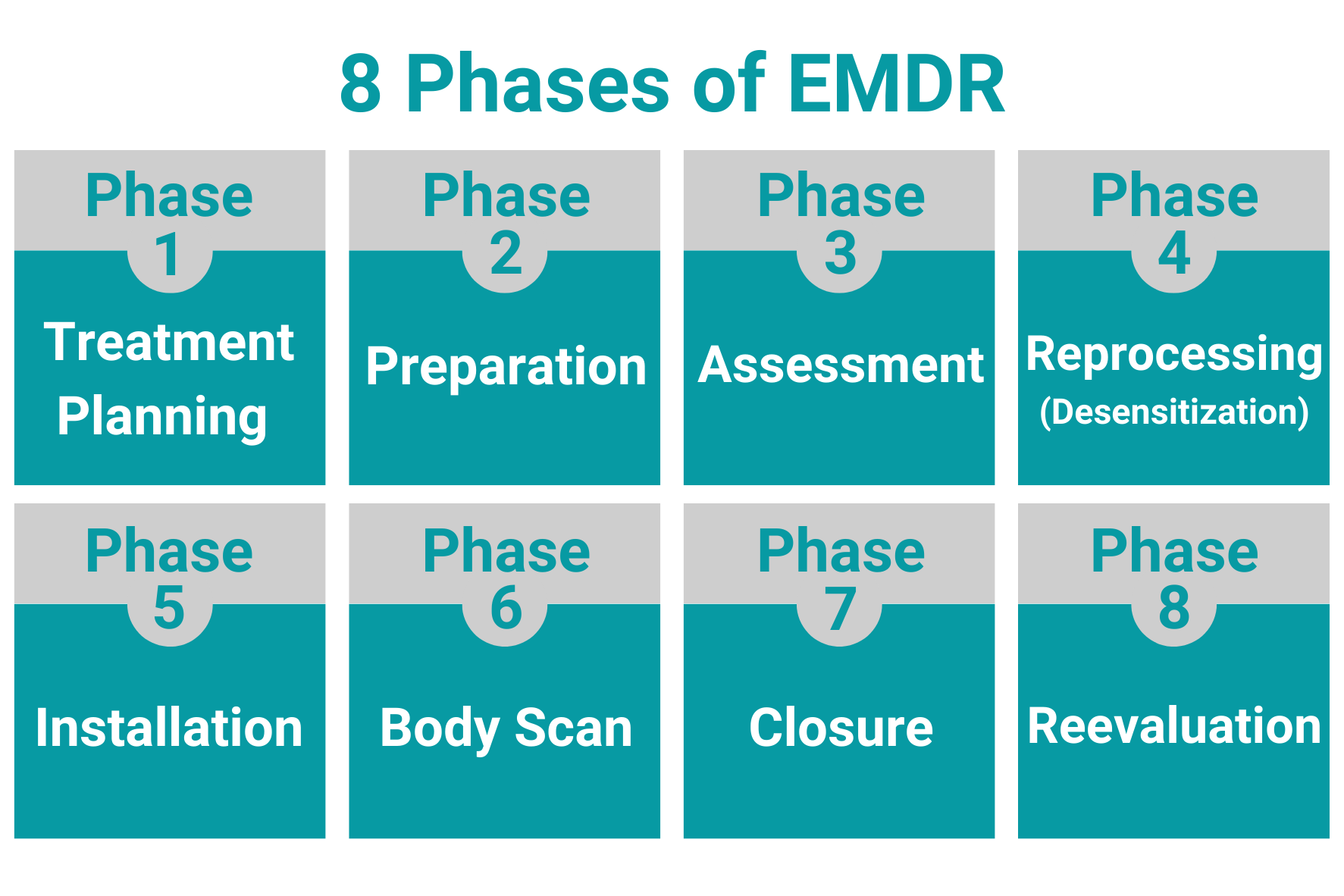Eye Movement Desensitization and Reprocessing, or EMDR therapy, offers a unique approach to psychotherapy, aiming to reduce the distress linked with traumatic memories. It has been recognized internationally as an effective treatment for trauma. In this detailed guide, we will take a comprehensive look at EMDR and understand its role in healing trauma.

The Foundation of EMDR Therapy
Developed in the late 1980s by Francine Shapiro, EMDR therapy is a phased, focused approach to treating traumatic and other distressing life experiences. It’s based on the idea that negative thoughts, feelings, and behaviors are the result of unprocessed memories. The treatment involves standardized procedures that include focusing simultaneously on spontaneous associations of traumatic images, thoughts, emotions and bodily sensations and bilateral stimulation that is most commonly in the form of repeated eye movements.

How EMDR Therapy Works: An In-depth Look
EMDR consists of eight phases: History taking, Preparation, Assessment, Desensitization, Installation, Body scan, Closure, and Reevaluation. These phases help the therapist to identify and process experiences that can trigger dysfunction. Once past traumatic experiences have been processed, the client’s current reality can then be adaptively processed. This means that present triggers and future anticipated situations can be addressed, allowing the individual to engage in their life without the distress that was previously triggered.

The Role of EMDR in Healing Trauma
EMDR therapy has been extensively researched and proven effective for the treatment of trauma. This powerful therapy can help people of all ages relieve many types of psychological distress. For many clients, EMDR can be completed in fewer sessions than other psychotherapies.
Benefits and Considerations of EMDR
While EMDR therapy has shown to be effective, it’s not a one-size-fits-all solution. Its effectiveness can vary depending on the individual and the nature of the trauma. EMDR therapy can be intense, as it involves confronting and processing difficult memories. Therefore, it’s crucial to work with a trained and experienced EMDR therapist who can guide you through the process safely and effectively.

EMDR Therapy: An Evidence-Based Approach
Many consider EMDR therapy an evidence-based approach. Numerous scientific studies have validated its effectiveness in treating trauma and PTSD. According to the American Psychiatric Association, EMDR is effective and may be particularly useful for people who have trouble talking about the traumatic events they’ve experienced.
Who Can Benefit from EMDR Therapy?
Initially developed to treat PTSD, EMDR’s scope has broadened over the years. Now, mental health professionals use it to treat various disorders like panic attacks, anxiety, depression, and even certain phobias. EMDR has the potential to dramatically improve quality of life for many individuals struggling with these conditions.
What to Expect in an EMDR Therapy Session
An EMDR therapy session is unique and different from traditional talk therapy. Typically, the therapist will move their hand or another object back and forth while the patient follows with their eyes. At the same time, the patient will be asked to recall a traumatic event. This process can help change the way the patient’s brain processes the memory of this event, making it less distressing.
EMDR and Other Therapies
Note that although EMDR is a powerful therapy by itself, it can also work well alongside other treatment methods. EMDR’s flexibility allows customization to suit each patient’s needs and integration into a comprehensive treatment plan.
Conclusion
In conclusion, *EMDR therapy* is a powerful tool for healing from trauma. While it may not suit everyone, its potential to bring about significant change is noteworthy. Always consult with a healthcare professional or an experienced EMDR therapist to discuss if it is the right treatment option for you.








Leave a Comment